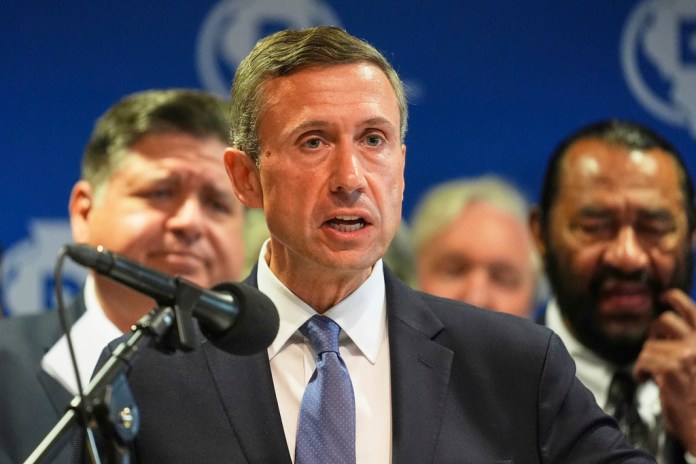Iranian retaliation against Israel ‘could come soon’ with little notice – Washington Examiner
The article discusses escalating tensions between Iran and Israel following the assassination of Hamas leader Ismail Haniyeh in Tehran. The U.S. strongly believes that Iran may soon retaliate against Israel, having prepared for an attack that could happen with little notice. National Security Council spokesman John Kirby indicated that Iran has made preparations, and there have been efforts from the U.S. and allied nations, including the UK, France, Germany, and Italy, to urge Iran to refrain from any military aggression.
Iran’s Foreign Ministry dismissed these calls from Western nations as lacking political logic and contradictory to international law. In anticipation of a potential Iranian attack, the U.S. has increased its military presence in the Middle East, strengthening its defenses and preparedness to protect Israel and respond to any developments. The article highlights the complex web of alliances and tensions in the region, where Iran supports various proxy groups that have engaged in hostilities against Israel and U.S. interests.
Iranian retaliation against Israel ‘could come soon’ with little notice
The United States still believes Iran could launch its highly anticipated retaliatory attack against Israel in response to the assassination of Hamas leader Ismail Haniyeh in Tehran last month.
Iran vowed a harsh response to Haniyeh’s killing, which occurred on July 31, though it hasn’t yet occurred, though Iranian officials have said part of their plot includes paralyzing Israeli society while it awaits a response that could come at any time.
“We know that Iran has made some preparations. We believe that, should they choose to attack, that they could do it with little or no notice, and that it could come, it could come soon,” National Security Council spokesman John Kirby told reporters on Thursday.
The U.S. has desperately sought to convince Tehran not to attack Israel in “pretty intensive diplomacy” via diplomatic intermediaries, he added.
The U.S., United Kingdom, France, Germany, and Italy issued a joint statement on Monday urging Iran not to retaliate.
“We expressed our support for the defense of Israel against Iranian aggression and against attacks by Iran-backed terrorist groups. We called on Iran to stand down its ongoing threats of a military attack against Israel and discussed the serious consequences for regional security should such an attack take place,” the joint statement said, in part.
Iran’s Foreign Ministry said that the calls from western nations to exercise restraint “lack political logic and contradict principles of international law.”
The U.S. military, in preparation for a possible attack, has increased its presence in the Middle East to deter an Iranian response. The U.S. has a military presence in Iraq, Syria, and Jordan, which have been targeted over the last several months by Iranian proxies in the region, and they could also come under attack during Iran’s response.
“We’ve adjusted our military posture to strengthen our force protection, to reinforce our ironclad commitment to the offense of Israel, and to remain prepared to respond to any contingency,” Secretary of Defense Lloyd Austin said last week. “I’ve also ordered more cruisers and destroyers capable of ballistic missile defense to the region, and I’ve ordered the deployment of another fighter squadron to the Middle East to reinforce our defensive air support capabilities here.”
Iran supports Hamas and several other proxy forces in the Middle East, all of whom have gone after Israel, the U.S. or western targets since Hamas’s Oct. 7 terrorist attack in Israel that sparked the current conflict.
Haniyeh was the head of Hamas’s political bureau and did not reside in Gaza. A day before his assassination in Tehran, which Israel has not taken credit for publicly, Israel targeted a top Hezbollah commander, a terrorist group based in Lebanon, whom Israel said was responsible for an attack that left a dozen teenagers dead in the Golan Heights.
Hezbollah and Israel have engaged in cross-border fires since October, forcing the evacuation of tens of thousands of civilians out of their homes in southern Lebanon and northern Israel. The two sides have threatened to expand the scope of their conflict, though neither side has shown a desire for an all-out war that would likely devastate both sides.
Hezbollah could be involved in Tehran’s retaliation. Hezbollah’s arsenal is much more sophisticated than Hamas, and they have the ability to hit targets anywhere within Israel with precision-guided missiles if they choose to escalate the current conflict.
Iran has indicated that a ceasefire between Israel and Hamas could convince them against responding, according to Reuters. Negotiators are in Doha, Qatar, on Thursday to make progress on getting a ceasefire agreement in place.
" Conservative News Daily does not always share or support the views and opinions expressed here; they are just those of the writer."




